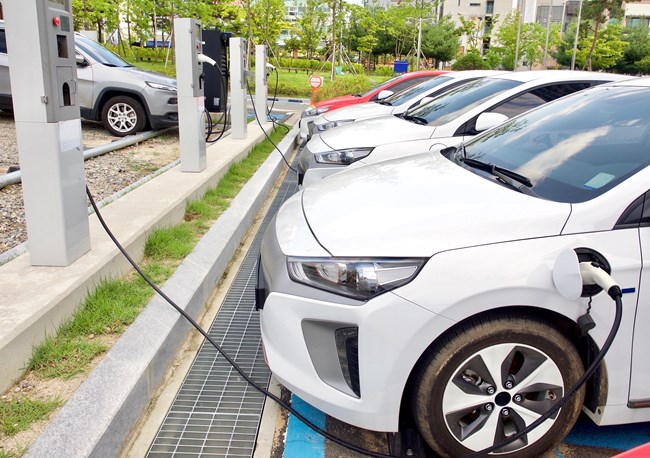We use cookies to ensure that we give you the best experience on our website. If you continue without changing your settings, we will assume that you are happy to receive all cookies on the Business Car website. However, if you would like to, you can change your cookies at any time

The start point for the best source of fleet information |
Government confirms ZEV mandate details
Date: 28 September 2023 | Author: Sean Keywood

The UK Government has published details of its ZEV mandate, setting out annual sales targets for zero-emission cars which manufacturers will be required to hit.
The much-anticipated measure had previously been released as part of a consultation, but the final targets have now been confirmed.
The mandate begins next year, when 22% of each manufacturer's new cars will have to be ZEVs, and will rise to 28% in 2025, 33% in 2026, 38% in 2027, 52% in 2028, 66% in 2029, and 80% in 2030.
Less strenuous targets are in place for vans, starting at 10% next year, and rising to 16% in 2025, 24% in 2026, 34% in 2027, 46% in 2028, 58% in 2029, and 70% in 2030.
100% ZEV sales will be required by 2035, when the UK's ban on all new petrol and diesel car and van sales will come into force.
Compliance with the scheme will not be measured by directly monitoring sales. Instead, manufacturers will receive allowances allowing them to sell a certain amount of non-ZEVs annually. These will be tradeable, so manufacturers which sell more ZEVs than required will be able to sell allowances to manufacturers which do not meet the targets.
Between 2024 and 2026, manufacturers which fall behind will also be allowed to 'catch up' in later years, and less strenuous measures are in place for manufacturers selling fewer than 2,500 vehicles per year.
Transport Secretary Mark Harper said: "The path to zero emission vehicles announced today makes sure the route to get there is proportionate, pragmatic, and realistic for families.
"Our mandate provides certainty for manufacturers, benefits drivers by providing more options, and helps grow the economy by creating skilled jobs.
"We are also making it easier than ever to own an electric vehicle, from reaching record levels of chargepoints to providing tax relief for EV owners."
Reacting to the announcement, Society of Motor Manufacturers and Traders chief executive Mike Hawes said: "With less than 100 days to go, manufacturers finally have clarity on what they are required to sell next year and up to 2030. The industry is investing billions in decarbonisation and recognises the importance of this mechanism as the single most important measure to deliver net zero.
"Delivering the mandate will challenge the industry, despite the flexibilities now included to support pragmatic, equitable delivery given this diverse sector.
"It is worth noting the mandate means the UK still retains the most ambitious transition timeline of any major market but without any private consumer incentives. Furthermore, the lack of a post-2030 regulatory framework creates investment uncertainty.
"Manufacturers offer a vast range of zero emission vehicles, but demand must also match supply. We need a buoyant market that delivers fleet renewal at scale, ensures a vibrant used EV market and gives consumers confidence.
"This means an attractive package of fiscal and other incentives, mandated infrastructure targets and a consistent message that encourages drivers to switch now."
Giving his reaction, BVRLA chief executive Gerry Keaney said: "Last week's announcement by the Prime Minister created a wave of uncertainty. Businesses planning their decarbonisation journeys need to be sure of their destination and deadline.
"This ZEV mandate clarity will wrestle back some of the confidence that last week's phase-out delay dented.
"The decarbonisation divide is growing. The company-provided car sector is well on its way and will be fully ZEV ahead of official targets. Others face much harder transitions.
"Vehicle rental, the retail market, and commercial vehicles have a mountain to climb if they are to adopt zero-emission vehicles in the volumes required. Targeted financial support and incentives will play a vital role."











